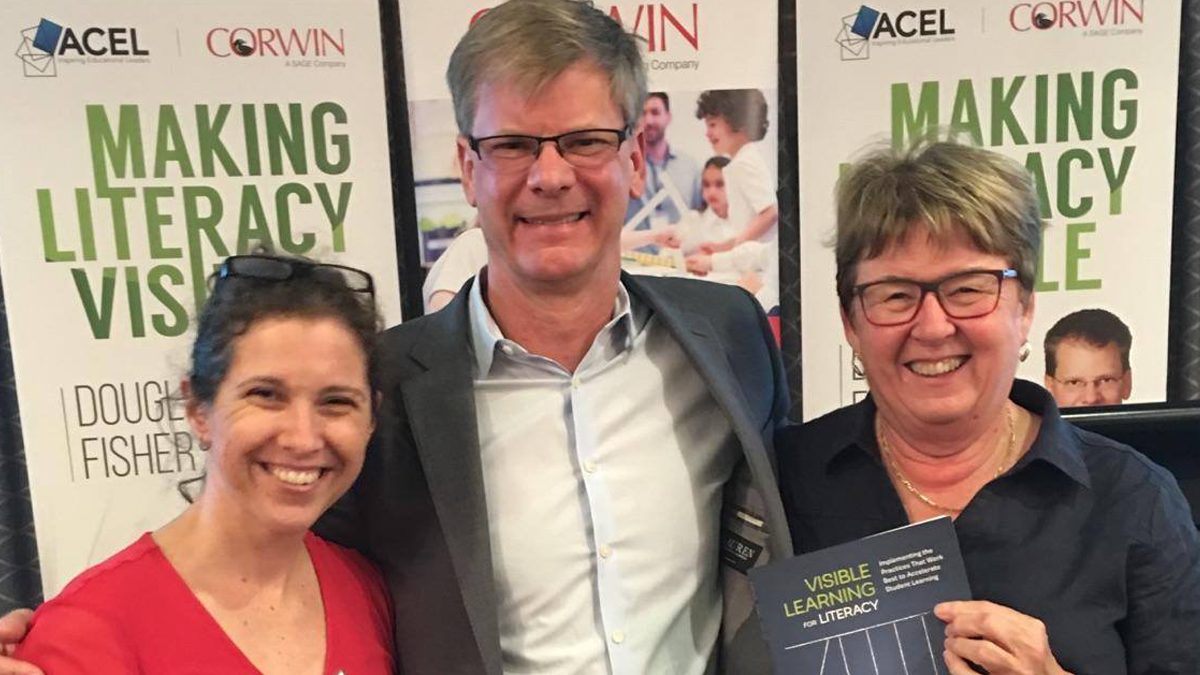
Recently, Catherine and I attended Professor Doug Fisher's Making Literacy Visible workshop in Brisbane.
The day was excellent. Like all good professional development, it was informative, affirming, practical, applicable and challenging. His witty deliver and passion for education further enhanced the quality of the workshop.
Based on the book he has written with Nancy Frey and John Hattie, the workshop covered what works best in the classroom.
The material comes from world-renowned educational leader John Hattie's in-depth research. His database contains 300 million students and he has collated the findings of thousands of researchers to help teachers find the Holy Grail of learning and teaching.
All teachers want to know what works. Hattie suggests that we need to know what works best. Some things actually reverse learning; some things are associated with growth and development and some things advance learning more than a year of learning for a year of attendance. If we are ever going to close the gap between those who succeed and those who don’t, then we must employ practices that give us more than one year of learning for every chronological year.
Here are three take-away notes from the workshop:
1. STREAMING OR ABILITY GROUPING IN CLASSES
Doug says this does not work. However, he stresses there is a difference between grouping students according to test scores and grouping them according to what they need to learn next. This can work well, especially if the groups are fluid. A pre-test gives an idea of student performance and one pre-test is enough.
2. STUDENT TO STUDENT DISCUSSION
You don’t get good at something you don’t do. Where teachers talk 80% of the time, outcomes are lowered.(Doug stopped talking at this point to share the video below). Teachers need to share the airspace with students.
3. STUDENT/TEACHER RELATIONSHIPS.
What Doug had to say about this wasn’t anything that people in the room hadn’t heard before. Young people don’t learn from old people they don’t like, so it is worth remembering how important good relationships are.
Doug drew on his experiences in his school where he goes to great lengths to learn names, great every student by name, remember things about their lives and take an interest in their activities outside school. It is difficult to be harsh or unpleasant to someone you see as a person so, from a teacher’s point of view, working on developing relationships is very important.





